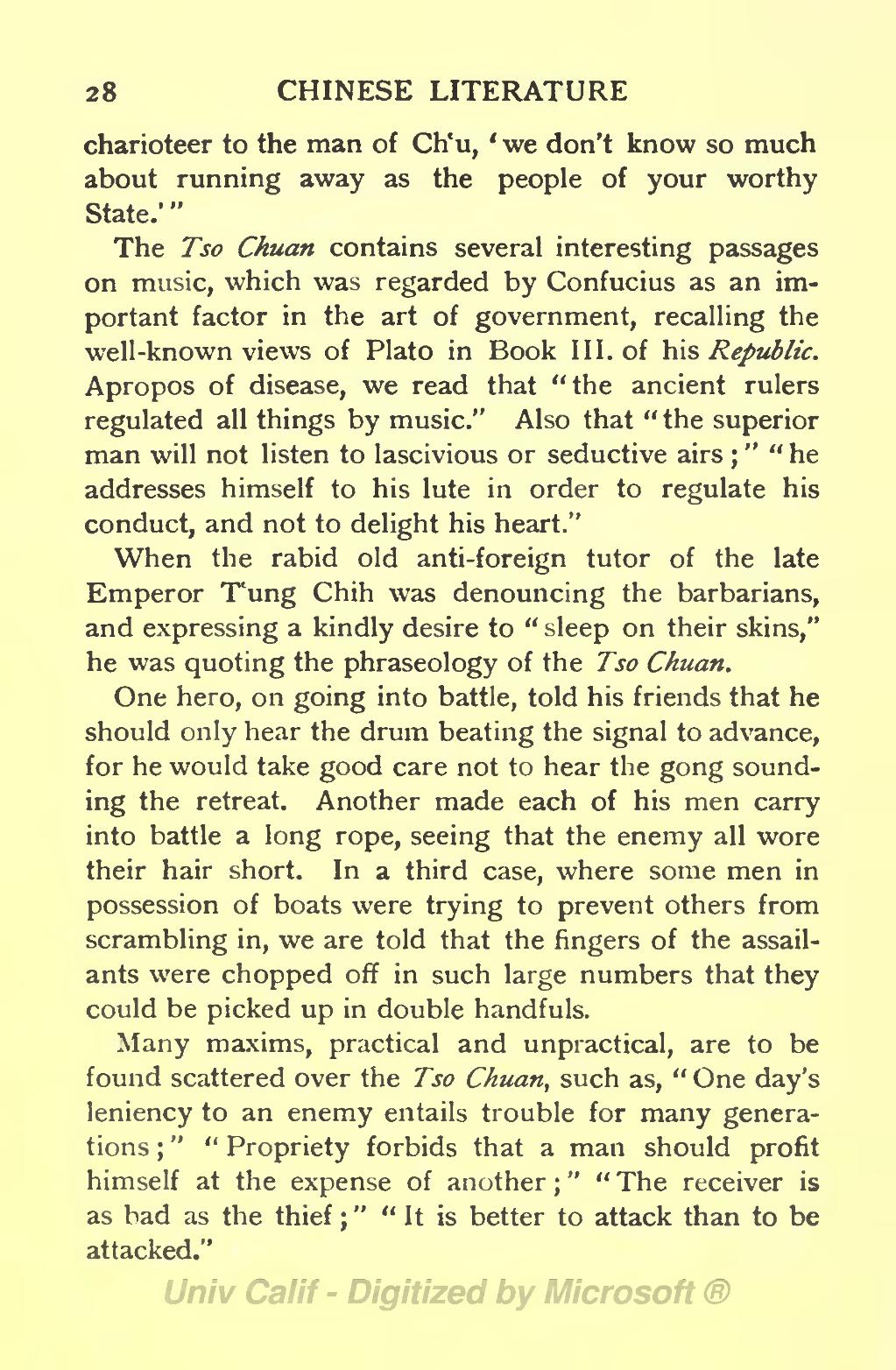charioteer to the man of Ch’u, ‘we don’t know so much about running away as the people of your worthy State.’”
The Tso Chuan contains several interesting passages on music, which was regarded by Confucius as an important factor in the art of government, recalling the well-known views of Plato in Book III. of his Republic. Apropos of disease, we read that “the ancient rulers regulated all things by music.” Also that “the superior man will not listen to lascivious or seductive airs;” “he addresses himself to his lute in order to regulate his conduct, and not to delight his heart.”
When the rabid old anti-foreign tutor of the late Emperor T’ung Chih was denouncing the barbarians, and expressing a kindly desire to “sleep on their skins,” he was quoting the phraseology of the Tso Chuan.
One hero, on going into battle, told his friends that he should only hear the drum beating the signal to advance, for he would take good care not to hear the gong sounding the retreat. Another made each of his men carry into battle a long rope, seeing that the enemy all wore their hair short. In a third case, where some men in possession of boats were trying to prevent others from scrambling in, we are told that the fingers of the assailants were chopped off in such large numbers that they could be picked up in double handfuls.
Many maxims, practical and unpractical, are to be found scattered over the Tso Chuan, such as, “One day’s leniency to an enemy entails trouble for many generations;” “Propriety forbids that a man should profit himself at the expense of another;” “The receiver is as bad as the thief;” “It is better to attack than to be attacked.”

